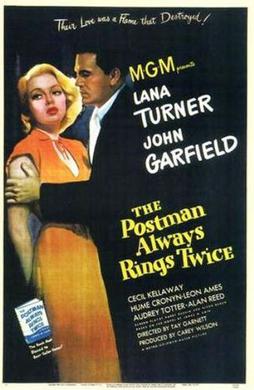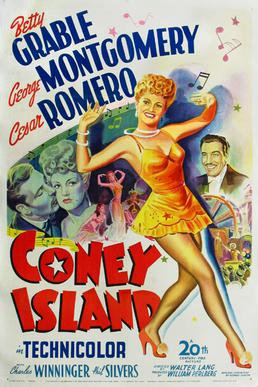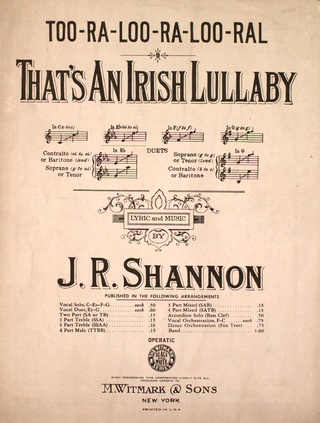Related Research Articles
This is a list of notable events in music that took place in the year 1910.

James Mallahan Cain was an American novelist, journalist and screenwriter. He is widely regarded as a progenitor of the hardboiled school of American crime fiction.

Chauncey Olcott, born John Chancellor Olcott and often spelled Chauncey Alcott, was an American stage actor, songwriter and singer of Irish descent.

"When Irish Eyes Are Smiling" is a lighthearted song in tribute to Ireland. Its lyrics were written by Chauncey Olcott and George Graff, Jr., set to music composed by Ernest Ball, for Olcott's production of The Isle O' Dreams, and Olcott sang the song in the show. It was first published in 1912, at a time when songs in tribute to a romanticised Ireland were very numerous and popular both in Britain and the United States. During the First World War the famous tenor John McCormack recorded the song.

"Oh, My Darling Clementine" is a traditional American, tragic but sometimes comic, Western folk ballad in trochaic meter usually credited to Percy Montross (1884), although it is sometimes credited to Barker Bradford.

"Danny Boy" is a song with lyrics written by English lawyer Frederic Weatherly in 1910, and set to the traditional Irish melody of "Londonderry Air" in 1913.

"Silver Dagger", with variants such as "Katy Dear", "Molly Dear", "The Green Fields and Meadows", "Awake, Awake, Ye Drowsy Sleepers" and others, is an American folk ballad, whose origins lie possibly in Britain. These songs of different titles are closely related, and two strands in particular became popular in commercial country music and folk music recordings of the twentieth century: the "Silver Dagger" version popularised by Joan Baez, and the "Katy Dear" versions popularised by close harmony brother duets such as The Callahan Brothers, The Blue Sky Boys and The Louvin Brothers.
"Streets of Laredo", also known as "The Dying Cowboy", is a famous American cowboy ballad in which a dying ranger tells his story to another cowboy. Members of the Western Writers of America chose it as one of the Top 100 Western songs of all time.

Ernest Roland Ball was an American singer and songwriter, most famous for composing the music for the song "When Irish Eyes Are Smiling" in 1912. Ball was not Irish and neither were the lyricists.

The Postman Always Rings Twice is a 1946 American film noir directed by Tay Garnett and starring Lana Turner, John Garfield, and Cecil Kellaway. It is based on the 1934 novel of the same name by James M. Cain. This adaptation of the novel also features Hume Cronyn, Leon Ames and Audrey Totter. The musical score was written by George Bassman and Erich Zeisl.

Mother Machree is a 1928 American synchronized sound drama film directed by John Ford that is based on the 1924 work The Story of Mother Machree by Rida Johnson Young about a poor Irish immigrant in America. While the film has no audible dialog, it was released with a synchronized musical score, singing and sound effects using the sound-on-film movietone process. Rida Johnson Young had invented Mother Machree in the stage show Barry of Ballymoore in 1910. John Wayne has a minor role in the film.

Coney Island is a 1943 American Technicolor musical film released by Twentieth Century Fox and starring Betty Grable in one of her biggest hits. A "gay nineties" musical, it also featured George Montgomery, Cesar Romero, and Phil Silvers, was choreographed by Hermes Pan, and was directed by Walter Lang. Betty Grable also starred in the 1950 remake, Wabash Avenue.

"Too-Ra-Loo-Ra-Loo-Ral " is a classic American song that was written in 1913 by composer James Royce Shannon (1881–1946) for the Tin Pan Alley musical Shameen Dhu. The original recording of the song, by Chauncey Olcott, peaked at #1 on the music charts. The song was brought back to prominence by Bing Crosby's performance in 1944's Going My Way. Crosby's single sold over a million copies and peaked at #4 on the Billboard music charts.

J. Keirn Brennan was an American songwriter. He joined ASCAP as a charter member in 1914 and collaborated with many notable songwriters. He is probably best known for co-writing the 1929 film The Show of Shows.

Rida Johnson Young was an American playwright, songwriter and librettist. Young wrote over 30 plays and musicals and approximately 500 songs. She was inducted into the Songwriters Hall of Fame in 1970. Some of her better-known lyrics include "Mother Machree" from the 1910 show Barry of Ballymore, "Italian Street Song", "I'm Falling in Love with Someone" and "Ah! Sweet Mystery of Life" from Naughty Marietta, and "Will You Remember?" from Maytime.
"Kevin Barry" is a popular Irish rebel song recounting the death of Kevin Barry, a member of the Irish Republican Army (IRA) who was hanged on 1 November 1920. He was 18 years old at the time. He is one of a group of IRA members executed in 1920–21 collectively known as The Forgotten Ten.
"Macushla" is the title of an Irish song that was copyrighted in 1910, with music by Dermot Macmurrough and lyrics by Josephine V. Rowe.
"Down in the Willow Garden", also known as "Rose Connelly", is a traditional Appalachian murder ballad. It is written from the perspective of a man facing the gallows for the murder of his lover, to whom he gave poisoned wine, then stabbed, and threw in a river. It originated in the 19th century, probably in Ireland, before becoming established in the United States. The lyrics greatly vary among earlier versions, but professional recordings have stabilized the song in a cut-down form. First professionally recorded in 1927, it was made popular by Charlie Monroe's 1947 version, and it has been recorded dozens of times since then.

"On Springfield Mountain" or "Springfield Mountain" is an American ballad which recounts the tragic death of a young man who is bitten by a rattlesnake while mowing a field. Historically, the song refers to the death of Timothy Merrick, who was recorded to have died on August 7, 1761, in Wilbraham, Massachusetts by snakebite. It is commonly included in collections of American folksong, and is one of the earliest known American ballads.

The Ballad of Buster Scruggs is a 2018 American Western anthology film written, directed, produced, and edited by the Coen brothers. It stars Tim Blake Nelson, Tyne Daly, James Franco, Brendan Gleeson, Bill Heck, Grainger Hines, Zoe Kazan, Harry Melling, Liam Neeson, Jonjo O'Neill, Chelcie Ross, Saul Rubinek, and Tom Waits. It consists of six vignettes set on the American frontier.
References
- ↑ A Century of American Popular Music - Page 137 1135352712 David A. Jasen - 2013 MOTHER MACHREE Chauncey Olcott and Ernest R. Ball (w: Rida Johnson Young) M. Witmark and Sons — New York 1910 Show: Barry of Ballymore Chauncey Olcott sang it in the show and also had a hit recording (Columbia A- 13 37).
- ↑ The American Magazine - Volume 90 - Page 34; 1920 "SEEMS incredible, but it is probably a fact, that more than half the people — and there are millions of them—who know and love the song, “ Mother Machree,” have no idea as to who wrote it. It is no exaggeration to say that “Mother Machree" has become the most sensational song success of this generation. Other songs have had an enormous popularity .... “In this case, I was working on a play called Barry of Ballymore, and I needed a song for Chauncey Olcott to sing."
- ↑ W. H. A. Williams The Image of Ireland and the Irish in American Popular Song Lyrics, 1800-1920 1996 0252065514 MOTHERS MACHREE The vogue of Irish mother songs in American popular culture owes much to "Mother Machree," written for Barry from Ballymore"
- ↑ "Mother Machree" (audio recording only) from film Rose of Washington Square (1939) on YouTube
- ↑ Philip Furia, Michael Lasser America's Songs: The Stories Behind the Songs of Broadway 2006. 1135471924 “Mother Machree” was a combination Irish song, mother song, and sentimental ballad. It was a classic tearjerker. In a song of praise to an aging mother, a son kisses “the dear fingers so toil-worn for me” ..."
- ↑ Sean Williams, Focus: Irish Traditional Music (NY: Routledge, 2010)
- ↑ James M. Cain, The Postman Always Rings Twice, Vintage Crime/Black Lizard Edition, page 19.